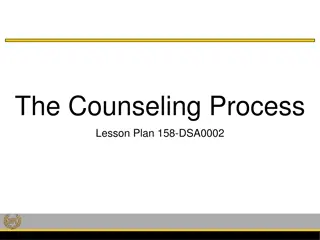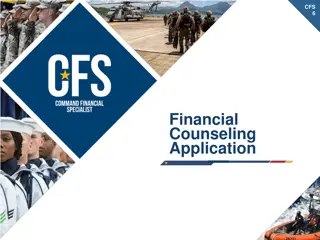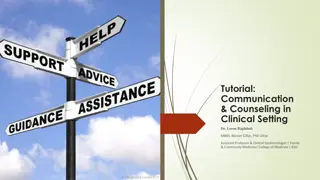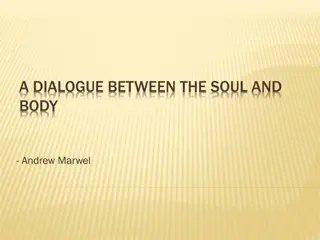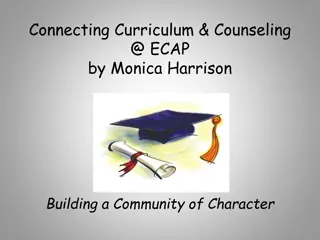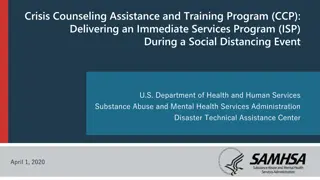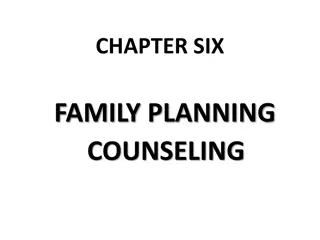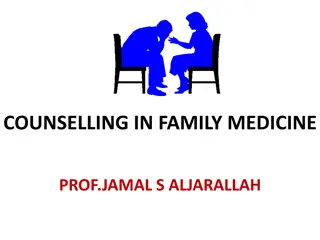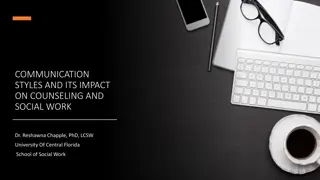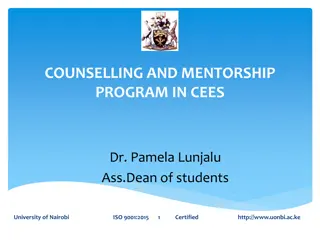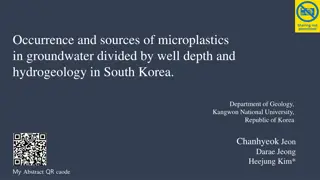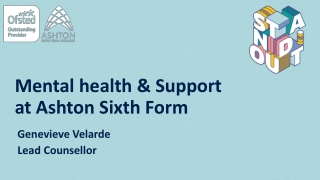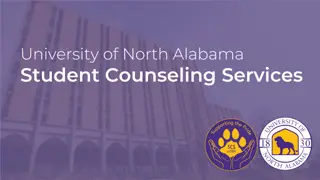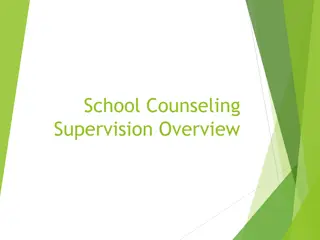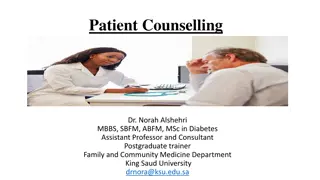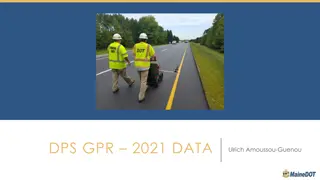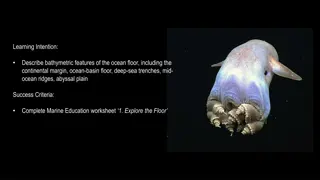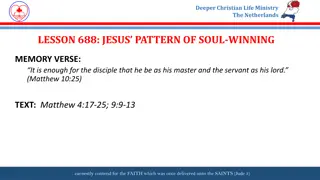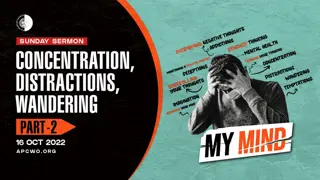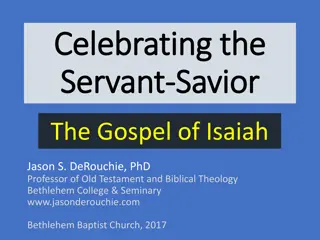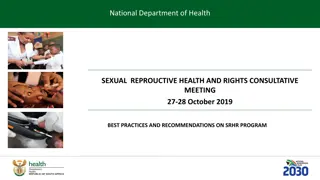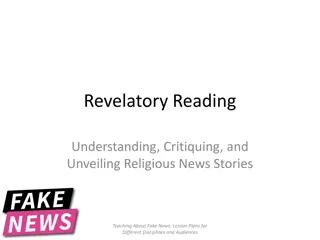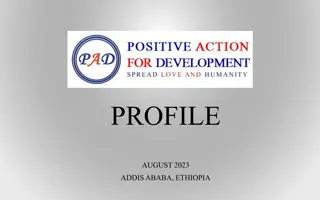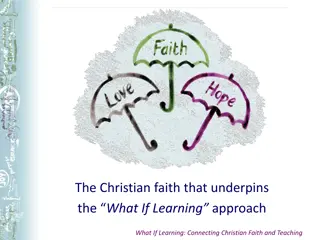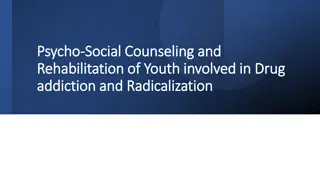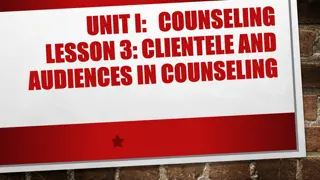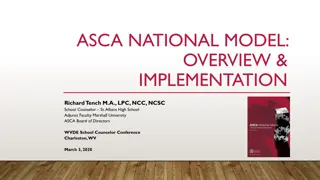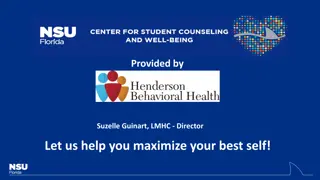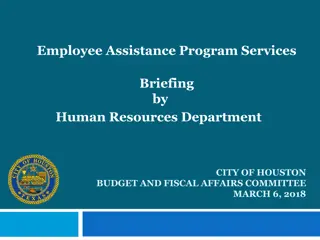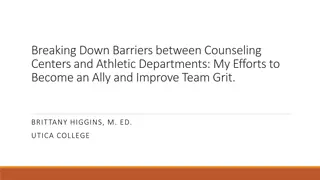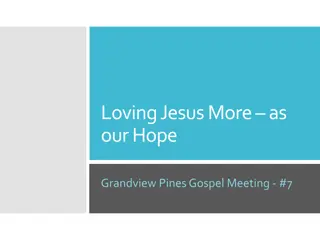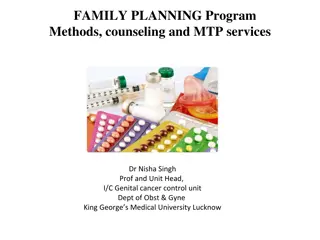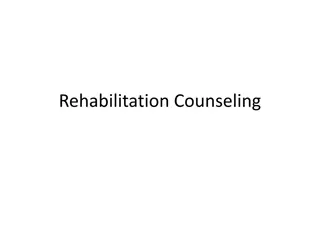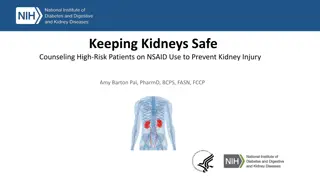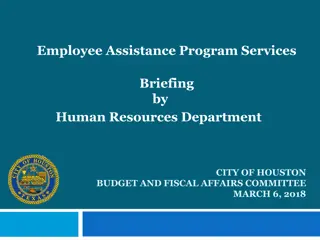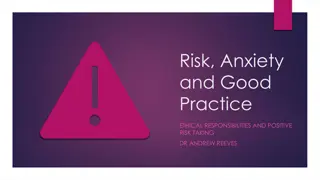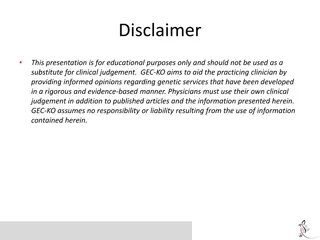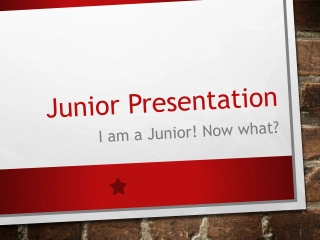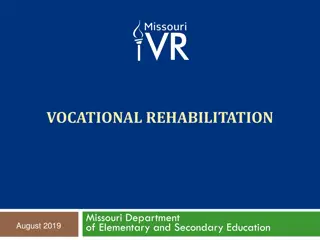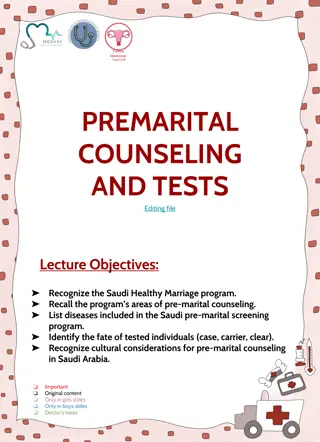Unveiling the Depths of Soul and Hope in Counseling
Delve into the profound exploration of soul and hope in counseling with Dr. John Prysor-Jones, a distinguished Counsellor and Psychotherapist. Understand how the essence of soul connects us to a broader consciousness, relationships, and the beauty of the world, while exploring the transformative power of hope in our lives and interactions.
Download Presentation

Please find below an Image/Link to download the presentation.
The content on the website is provided AS IS for your information and personal use only. It may not be sold, licensed, or shared on other websites without obtaining consent from the author. Download presentation by click this link. If you encounter any issues during the download, it is possible that the publisher has removed the file from their server.
E N D
Presentation Transcript
Exploring hope: an experience of soul in counselling Dr John Prysor-Jones Counsellor and Psychotherapist
Thinking about soul Soul can be understood as the intimate embodied part of ourselves which can link us to a wider consciousness and connection with each other and the natural and cultural world.
Thinking about soul Soul can be referring to a vital animating core of our embodied selves, a certain essential something, that links us (through love) to the divine, to each other and to the exquisite beauties of the natural and cultural world. We know the soul when we experience it (Kalshed, 2013:10)
Thinking about soul A space for encounter A way of being and knowing in the world Engaging our deeper self and sense of what is meaningful and fulfilling Can lead to inner change.
Thinking about soul Significant human experiences can embrace all dimensions of our humanity and interact with each other Affiliative - relatedness beyond self to other people, living or dead, or to God or a higher power.
Thinking about soul Affective - focuses on emotions and sensations, attraction to the desirable, personal significance of the outcome for our well-being Cognitive - the thought processes by which we wonder, wish, desire; reality based Behavioural - actions taken to achieve a particular goal, could be psychological, physical, social, and religious or a mixture
Thinking about soul Temporal - our experience of time (past, present) which may influence our future living. Contextual - what influences us in the present it could be health, loss, relationships, abilities etc.
Exploring hope How do you experience it? How does it work? How do you know it s there? How does your own hope or lack of it, as a counsellor and as a human being influence your clients? How do experiences of hopelessness affect your hope?
Exploring hope What comes to you when you hear the word hope?
Exploring hope Hope is a multidimensional dynamic life force characterised by a confident yet uncertain expectation of achieving a future good, which to the hoping person is realistically possible and personally significant (Dufault & Martocchio, 1985:380)
Exploring hope Hope is something we do with others. Hope is too important-its effects on body and soul too significant-to be left to individuals alone. Hope must be the responsibility of the community (Weingarten, 2000:402).
Exploring hope Hope can be defined as a process of anticipation that involves the interaction of thinking, acting, feeling and relating, and is directed towards a future fulfilment that is personally meaningful (Stephenson, 1991:1459)
Exploring hope Hope is Meaningful to the person Involves thoughts, feelings, behaviours and relationships Has anticipation Has a future orientation, grounded in the present and linked with the past Is realistic
Thinking about hope Hoping is knowing what is provided is not the musical score but an invitation to the concert The Voice of Hope: Heard Across the Heart of Life, Ronna Jevne, 1994:136
Thinking about hope Hope is for the soul what breathing is for the living organism Homo Viator, (2010:5) Gabriel Marcel.
Thinking about hope Hope is much like a cat in the dark- you only know it s there by the reflection of its eyes- which means there is light near by. Terri Guillemets. (nd)
Thinking about hope HOPE IS NOT PROGNOSTICATION AND IS DEFINITELY NOT THE SAME AS OPTIMISM. IT IS NOT THE CONVICTION THAT SOMETHING WILL TURN OUT WELL, BUT THE CERTAINTY THAT SOMETHING MAKES SENSE, REGARDLESS OF HOW IT TURNS. Letters to Olga, Vaclav Havel, 1988.
Thinking about hope HOPE IS A STATE OF MIND, NOT OF THE WORLD. HOPE, IN THIS DEEP AND POWERFUL SENSE, IS NOT THE SAME AS JOY THAT THINGS ARE GOING WELL, OR WILLINGNESS TO INVEST IN ENTERPRISES THAT ARE HEADING FOR SUCCESS, BUT RATHER AN ABILITY TO WORK FOR SOMETHING BECAUSE IT IS GOOD. Vaclav Havel (1990:83)
Exploring hope Hope is a common or universal experience Well developed folk concept The desire to want something better Often arising in adverse conditions It is related to the intimate self Deepest sense of what is meaningful,fulfilling and can lead to inner change
Some characteristics of hope Hope paradoxically comes into awareness when it is absent in adversity and has antecedents of loss, threat, uncertainty of outcome, acute and chronic suffering. It also sustains and supports when no action is possible.
Some characteristics of hope Hope can co-exist with hopelessness in a dialogue experienced intermittently, by both counsellor and client, and can be felt as a struggle leading to a loss of hope. It is seen to fluctuate during a counselling session. Counsellors carry different levels of hope and hopelessness in different parts of their being.
Some characteristics of hope Hope seems to be a way of looking at life with a capacity to live at more than one level, being open with all the senses to what can be experienced arising from a sense of what is greater and beyond present human experience. In this sense it has in my view a spiritual quality and can be an experience of soul
Exploring our own experience Exposure and dialogue with other peoples experience can touch our own, often not in immediate awareness, realising what is known tacitly. Such exposure to counsellors experience can offer entry to our world of practice.
Bibliography Dufault, K & Martoccio, B (1985) Hope: Its Spheres and Dimensions. Nursing Clinics of North America ,20(2) 379-391 Jevne, R. (1994) The Voice of Hope: Heard Across the Heart of Life. San Diego: Lura Media. Kalshed, D (2013) Trauma and the Soul Marcel, Gabriel. ([1952], 2010) Homo Viator: Introduction to the Metaphysic of Hope. South Bend, Indiana: St. Augustine s Press. Translation from French by Craufurd, E. & Seaton, P. Originally published in English in 1952. Stephenson, C (1991) The concept of hope revisited for nursing. Journal of Advanced Nursing, 16, 1456-1461 Weingarten, Kathy, (2000) Witnessing, Wonder, and Hope. Family Process, 39(4), 389- 402.


